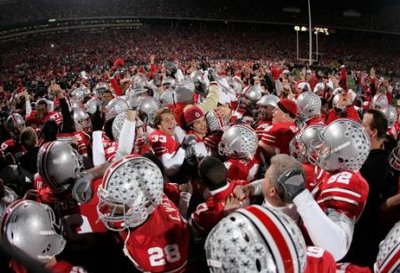 I had to ponder this topic as part of my current Old Testament studies class. Not being well-versed in the philosophies of Epicurus, or theodicy, (a nice 50 cent word for a cocktail party!), I'm still trying to wrap my brain around the question: "How do we reconcile God's omnipotence and his goodness with the problem of suffering?"
I had to ponder this topic as part of my current Old Testament studies class. Not being well-versed in the philosophies of Epicurus, or theodicy, (a nice 50 cent word for a cocktail party!), I'm still trying to wrap my brain around the question: "How do we reconcile God's omnipotence and his goodness with the problem of suffering?"
About six years ago, my dad struggled through the final stages of non-Hodgkin’s lymphoma. A retired pathologist, he understood the finality of his diagnosis and the futility of treatment options. Despite all this, he was remarkably upbeat and full of frank common sense. He told us on more than one occasion when recuperating from the effects of chemotherapy, “I am not getting a cure here, I am buying time.” As the years have gone by, I have reflected on his attitude and philosophy. While we all miss him, we were able to let him go without too much anguish. He had a tenuous hold on living the last 7 years of his life, but he lived it to the full.
As I learned from his example, and others who have suffered for various reasons in this life, I have come to the conclusion that it is not the circumstances that dictate the gravity of one’s trials in life, as much as how you come to view these events in “the big picture.” If your “big picture” is close to accurate, as I believe my dad’s was, then you have more of God’s perspective on illness, suffering, and even death. Your whole outlook and view of God accepts that the good and bad in life are part of life, and not necessarily God’s “fault” or “plan.”
Satan suggested an imperfect “big picture,” implying that Job was only obedient because he was being blessed by God. The assumption was made that if the blessings ceased, so would the righteousness, causing Job to turn away from a God who might allow suffering to enter his life. As Job faced multiple onsets of trials, his companions, in light of the “retribution principle,” suggested that he was only suffering because of some wickedness in his life that he was not acknowledging. Job insisted over and over throughout the book that he is blameless and not deserving of this treatment. By keeping a steadfast faith in God, Job said “yes” to God’s sovereignty over his circumstances.
Henri Nouwen, in his book “Can You Drink the Cup?” suggests that Jesus is the best model for facing the ultimate in trials. He was “a man of sorrows and familiar with suffering” (Is. 53:3). Jesus had to struggle with what he knew was God’s plan – that he would have to drink the cup of suffering. He did not accept it without an anguished heart-cry of prayer. Nouwen writes:
Why then could he still say yes? I can’t fully answer that question, except to say that beyond all the abandonment experienced in body and mind Jesus still had a spiritual bond with the one he called Abba. He possessed a trust beyond betrayal, a surrender beyond despair, a love beyond all fears. This intimacy beyond all human intimacies made it possible for Jesus to allow the request to let the cup pass him by become a prayer directed to the one who had called him ‘My Beloved.’ (Henri Nouwen, Can You Drink the Cup?, p. 35.)
The only way Job was able to rest in his suffering was to believe in the God he knew to be the only God. He declared his righteousness, and that God was worthy of trust and “bigger” than the puppet master that Eliphaz, Bildad, and Zophar made Him out to be. Though Job could not answer God’s questions, he still had an intimate understanding of His Lord. That constancy of faith is what God rewarded.
I'd like to be known for this, some day as well...
From our home to yours...
Deb
 You musicians out there know what I mean. It's time for the weekly "sound check" and you stare blankly at your beloved techie at the board when it's your turn and say something wise like "check-check... check... one-two" or if you have enough caffeine in you, you might be witty and say "check-cash-credit" or something else much overused.
You musicians out there know what I mean. It's time for the weekly "sound check" and you stare blankly at your beloved techie at the board when it's your turn and say something wise like "check-check... check... one-two" or if you have enough caffeine in you, you might be witty and say "check-cash-credit" or something else much overused.



























